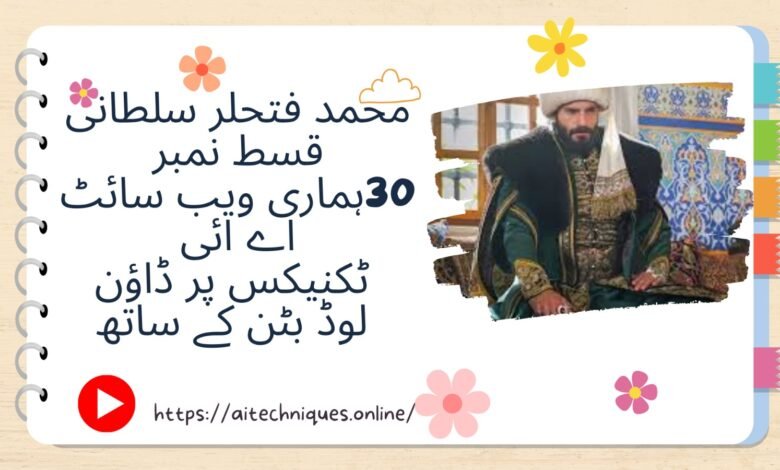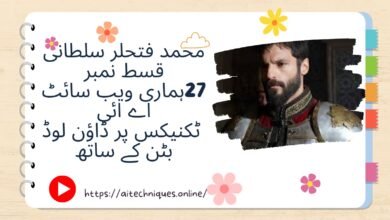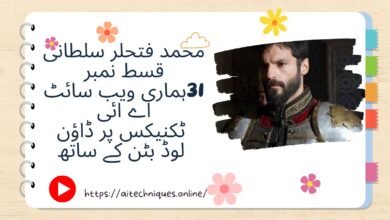Mehmed – Fatih Al Sultani Episode 30 with Urdu Sub titles
Mehmed – Fatih Al Sultani Episode 30 with Urdu Sub titles

The transcript presents a passionate call to arms, invoking the historical and religious significance of a military campaign led by Mehmet, likely referring to Mehmed II, known as the Conqueror of Constantinople. The speaker expresses a fervent belief in divine support for their cause, emphasizing a vision of victory against the ‘kafir’ (infidels) and a promise of divine retribution against enemies. The tone is deeply spiritual and patriotic, underscoring the belief in a righteous fight where the soldiers are not just engaged in a physical battle but are also partaking in a divine mission. The speaker implores God for guidance and mercy, invoking a sense of unity and purpose among the troops as they prepare to face a formidable adversary. The call culminates with a rallying cry, exalting the name of Allah and proclaiming Mehmet as the Sultan of Conquests, reinforcing the gravity and significance of the upcoming battle.
Highlights
- ⚔️ Divine Mission: The speaker frames the military campaign as a holy endeavor supported by God, invoking a sense of destiny and righteousness.
- 🔥 Imminent Conflict: The anticipation of a fierce battle is palpable, with metaphors of hell awaiting the enemies, suggesting a high-stakes confrontation.
- 🛡️ Unity in Faith: There is a strong call for unity among the soldiers, emphasizing shared beliefs and the collective mission against the ‘kafir.’
- 📜 Historical Context: References to Mehmed II highlight the historical significance of the campaign, linking it to the broader narrative of Islamic conquests.
- 👑 Leadership of Mehmet: The speaker glorifies Mehmet as a pivotal figure, underscoring his role as a leader destined for greatness in military conquests.
- ⏳ Time of Reckoning: The urgency in the speech indicates that the time for action is now, creating a sense of immediacy for the listeners.
- 🙏 Prayer and Mercy: The invocation for divine mercy and guidance portrays the battle as not only a physical struggle but also a spiritual one, emphasizing a reliance on faith.
Key Insights
- 🌌 Theological Justification for War: The speaker utilizes theological rhetoric to frame the conflict as not merely a territorial conquest but a divine mission. This perspective is common in historical contexts where religion plays a central role in motivating military actions. It reflects a broader trend in which leaders invoke religious legitimacy to rally support for their causes, often using phrases that connect their actions to a higher purpose.
- 🏰 Historical Significance of Mehmet II: Mehmed II’s legacy as the Conqueror of Constantinople is crucial to understanding the context of this military campaign. His successful siege in 1453 marked the end of the Byzantine Empire and the rise of the Ottoman Empire as a dominant power in the region. The speaker’s references to him not only honor this historical figure but also inspire contemporary soldiers by linking their mission to a celebrated past.
- 🌍 Cultural Identity and Conflict: The dichotomy between the ‘kafir’ and the faithful underscores a cultural and religious identity that fuels conflict. It reflects the broader tensions between different religious groups, particularly during the medieval period when such battles were often couched in terms of existential struggle. This framing helps to solidify group identity and can galvanize troops for battle.
- 💪 Psychological Warfare: The vivid imagery of hell awaiting enemies serves as a psychological tool, instilling fear and a sense of urgency among the opposition. Such rhetoric can be effective in warfare, as it not only demoralizes the enemy but also emboldens one’s own forces by framing the struggle in stark moral terms. This tactic has been historically effective in motivating troops and justifying aggressive actions.
- 🕊️ The Role of Prayer in Warfare: The invocation for mercy and divine guidance illustrates the importance of prayer in military contexts, especially within Islamic traditions. This highlights a unique aspect of how faith can serve as a source of strength and resilience for soldiers, suggesting that spiritual preparation is as vital as physical readiness in the lead-up to battle.
- 🎖️ Legacy of Conquests: The emphasis on Mehmet as the “Sultan of Conquests” reflects the enduring legacy of military leadership within the Ottoman Empire. Such titles not only honor past achievements but also serve to inspire current and future generations, creating a narrative of unbroken strength and success that can motivate soldiers to pursue their own victories.
- 🕰️ The Urgency of Action: The repeated calls for action and the immediacy of the conflict suggest a critical moment in the historical timeline. This urgency can act as a catalyst for collective action among troops, fostering a sense of camaraderie and shared purpose. In times of conflict, such calls are essential for maintaining morale and commitment to the cause.
In conclusion, the transcript encapsulates a moment steeped in historical and cultural significance, where faith, identity, and military ambition converge. The speaker’s passionate address serves to rally troops with a blend of religious fervor and national pride, highlighting the complexity of motivations behind historical military campaigns.



